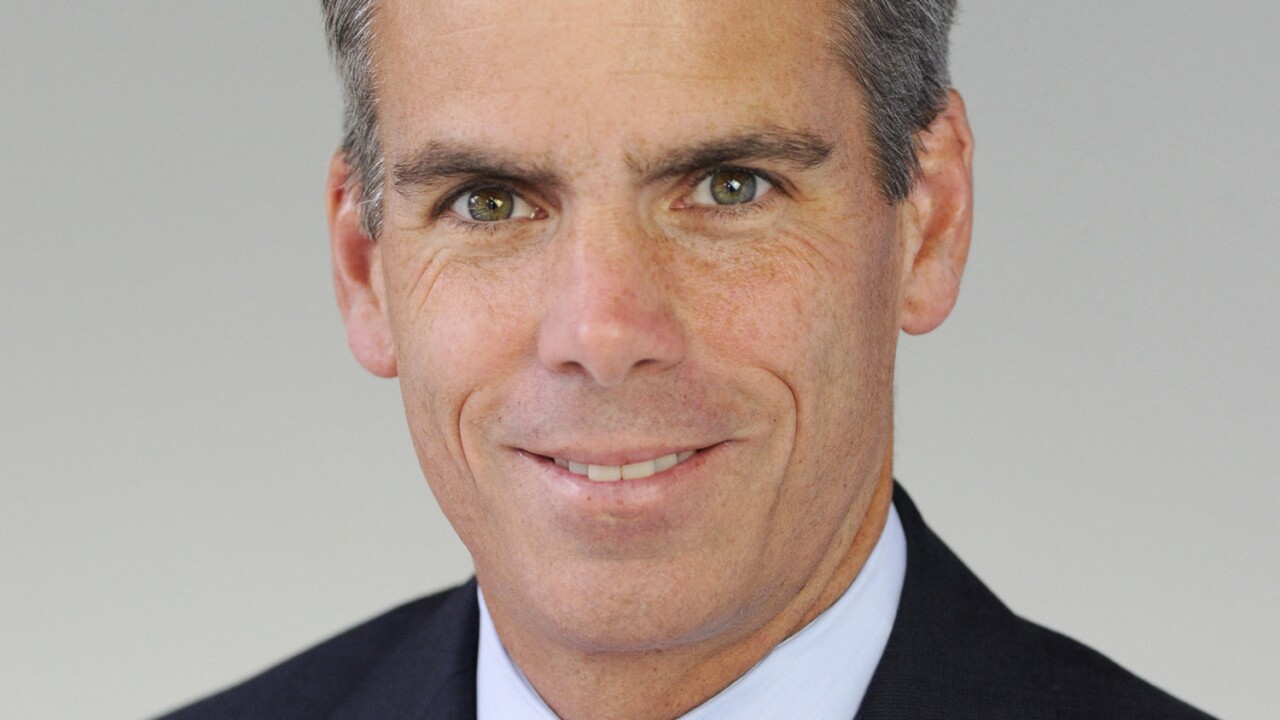-
There were doubts that CommunityOne could survive in 2011, even with the help of private equity and cooperation from regulators. Four years later, the North Carolina company is again profitable and healthy enough to consider acquisitions.
September 11 -
Capital Bank Financial in Coral Gables, Fla., has agreed to buy CommunityOne Bancorp in Charlotte, N.C.
November 23 -
The Florida company's business plan relies heavily on consolidation, but management hasn't announced a deal in more than two years. CEO Gene Taylor recently told analysts that M&A remains a focus, but the company will no longer discuss the topic until it has something to announce.
October 30 -
The Office of the Comptroller of the Currency has lifted its operating agreement with the banking unit of Capital Bank Financial in Coral Gables, Fla.
September 1
Capital Bank Financial in Coral Gables, Fla., has finally ended its lengthy silence on its acquisition plans.
Executives at the $7.3 billion-asset company vowed in October 2014 to stop discussing or answering questions about deals until they had one in hand. After announcing a deal on Monday that would substantially boost its deposit share in the Charlotte market, Chief Financial Officer Christopher Marshall identified Florida and Tennessee as other areas where it is eyeing expansion.
"We continue to see excellent growth opportunities in both Florida and Tennessee, and we expect to continue growing in these markets … both organically and through future acquisition opportunities," Marshall said on a conference call discussing Capital's acquisition of the $2.4 billion-asset CommunityOne Bancorp in Charlotte.
How quickly it moves, though, depends on how ready it is to cross $10 billion of assets, a mark where it would face stress testing and caps on interchange fees.
The deal for CommunityOne would put Capital on the cusp of that threshold, but officials said Monday that it could delay crossing it by shedding lower-yielding loans and securities in the coming months. Purging certain assets would also help Capital Bank improve its return on assets, Marshall said. Capital Bank has been targeting a 1% return on assets by the end of this year; that metric stood at 0.92% at Sept. 30.
Absent another acquisition, Capital Bank's plan to shed lower-yielding assets should help keep it below the $10 billion mark until 2017. Marshall said the company expects to start losing about $4 million in annual interchange fee revenue starting in 2018.
Capital Bank was formed in 2010 to roll up community banks, but its deal for CommunityOne, expected to close in the first quarter, would be its first acquisition since October 2012.
The deal is important because it signals that Capital Bank is ready to start buying again, Brady Gailey, an analyst at Keefe, Bruyette & Woods, wrote in a note to clients. He added that Capital might be in better shape to pursue deals since its operating agreement with the Office of the Comptroller of the Currency was lifted in late August.
"We like this deal as it partially deploys Capital Bank's excess capital in attractive North Carolina markets with only reasonable tangible book value dilution," Gailey said.
Much of Monday's conference call was devoted to Capital Bank's plans for CommunityOne, a company formed in 2011 by the merger of the struggling FNB United and Bank of Granite. That merger was made possible due to
"We're partnering with people we know really well in markets where we have decades of experience," Gene Taylor, Capital Bank's chairman and chief executive, said during the call. "We're really focused on growth. This would include making a larger balance sheet available for CommunityOne's existing credit relationships as well as focusing all our combined resources on the task of generating new relationships."
Marshall said in response to an analyst's question that Capital Bank was invited to bid on CommunityOne, a company that the buyer's management team had been following closely in recent years. Negotiations finally yielded a deal valued at $350 million, or 130% of CommunityOne's tangible book value.
There will also be opportunities to boost revenue, though they were not including in the financial assumptions. Marshall noted that CommunityOne has more experience with Small Business Administration lending, while Capital Bank has been focused on larger commercial clients. The deal would also increase Capital Bank's branches in and around Charlotte from three to 16 and more than quintuple its total deposits in the market.
For CommunityOne, the deal would complete an extended turnaround effort that seemed to gain traction in the past year. The company had been producing healthier results, re-entered certain business lines, opened lending offices in Raleigh, N.C., and Charleston, S.C. and
"We're proud of the progress that we've made," Bob Reid, CommunityOne's chief executive, said during brief remarks on Monday's call. "I want to thank all of my teammates for the contributions they have made. I know they're proud of what they've accomplished … but it is the right time for us to partner with another institution."
It is unclear what Carlyle and Oak Hill plan to do with their shares in CommunityOne. While the sale seems to provide an exit for the firms, Kevin Fitzsimmons, an analyst at Hovde Group, wrote in a note to clients that the deal's price represents a discount to the big shareholders' estimated cost-basis investment of $16 a share.
Marshall declined to discuss the ongoing role of private equity. Representatives for Carlyle and Oak Hill also declined to comment.





